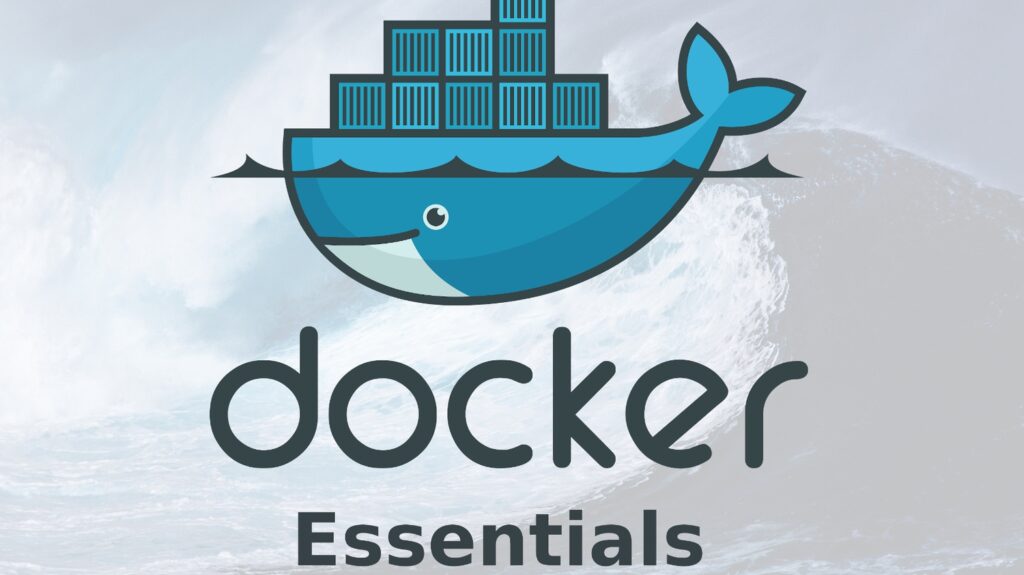Docker Essentials: An Introduction to Containerization and Beyond
Introduction:
- Briefly introduce the concept of containerization and its significance in modern software development.
- Highlight the role of Docker as a leading containerization platform.
Section 1: Understanding Docker:
- Define Docker and explain its fundamental purpose.
- Describe the key components of Docker, including Docker Engine, Docker Hub, and Docker Compose.
- Explore the benefits of using Docker for application development, deployment, and management.
Section 2: Core Concepts of Docker:
- Explain Docker images and containers.
- Discuss the concept of Dockerfile and how it is used to create custom Docker images.
- Demonstrate how Docker containers provide isolation and consistency across different environments.
Section 3: Getting Started with Docker:
- Provide step-by-step instructions for installing Docker on various operating systems.
- Walk through the process of running your first Docker container using a simple example.
Section 4: Working with Docker Images:
- Explain the Docker image registry and how Docker Hub fits into the ecosystem.
- Detail the process of pulling, pushing, and tagging Docker images.
- Discuss best practices for creating efficient and secure Docker images.
Section 5: Container Orchestration and Scaling:
- Introduce the concept of container orchestration and why it’s essential for managing complex applications.
- Briefly touch on Kubernetes and Docker Swarm as popular container orchestration tools.
- Highlight the importance of scaling containers for high availability and performance.
Section 6: Networking and Storage in Docker:
- Discuss Docker networking modes and how containers communicate with each other.
- Explain Docker volumes and their role in persistent data storage.
- Provide examples of how to configure networking and storage for Docker containers.
Section 7: Managing Docker Containers:
- Cover essential Docker commands for managing containers, images, and volumes.
- Describe how Docker Compose simplifies multi-container applications’ management.
- Provide tips for monitoring and troubleshooting Docker containers.
Section 8: Security and Best Practices:
- Address security considerations when working with Docker containers.
- Offer best practices for securing Docker images, containers, and the Docker environment.
- Mention resources for staying updated on Docker security guidelines.
Docker Essentials certifications were typically offered by Docker or third-party training providers, and they often came with a cost. However, there might have been changes or new developments since then. Here are some general steps you can take to potentially find free certification opportunities for Docker Essentials:
- Check Official Sources: Visit the official Docker website or the website of the certification provider to see if they have any promotions, scholarships, or limited-time offers for free or discounted certifications.
- Online Learning Platforms: Websites like Coursera, edX, Udemy, and others sometimes offer free or low-cost courses related to Docker and containerization. While these might not directly provide certification, they can offer valuable knowledge that could help you prepare for the certification exam.
- Community Events and Meetups: Keep an eye out for Docker-related community events, meetups, webinars, and conferences. Sometimes, these events offer free workshops or training sessions that can enhance your Docker skills.
- Open Source Projects: Contributing to open-source Docker projects can be a great way to learn and gain experience. While not a formal certification, it can demonstrate your expertise to potential employers.
- Employer or Educational Institution Support: Some employers or educational institutions offer training opportunities as part of professional development. Check if your current employer or educational institution provides access to Docker training resources.
- Scholarships and Grants: Organizations focused on promoting technology education and skills development might offer scholarships or grants for Docker-related certifications. Look for tech-focused foundations or non-profit organizations that support education in your area.
- Networking: Engage with the Docker and DevOps community on platforms like LinkedIn, Twitter, and relevant forums. Sometimes, professionals in the field share information about free training opportunities or resources.
- Self-Study: While it might not lead to an official certification, you can study Docker Essentials using free online tutorials, documentation, and resources. This knowledge will still be valuable in your career.
Remember, the availability of free certifications can change over time, so it’s a good idea to do thorough research and explore different avenues. Keep in mind that while a free certification would be great, investing in quality education and training can have long-term benefits for your career. Always ensure that any certification you pursue is reputable and aligned with your career goals.

